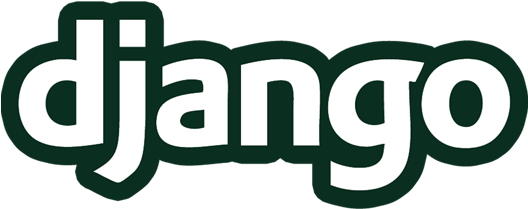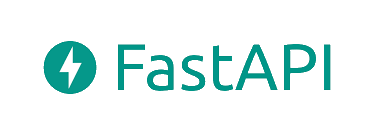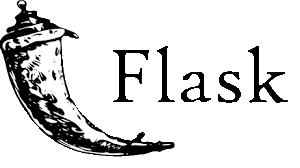Python

Python is an interpreted high-level general-purpose programming language. Its design philosophy emphasizes code readability with its use of significant indentation. Its language constructs as well as its object-oriented approach aim to help programmers write clear, logical code for small and large-scale projects.
Python is dynamically-typed and garbage-collected. It supports multiple programming paradigms, including structured (particularly, procedural), object-oriented and functional programming. It is often described as a "batteries included" language due to its comprehensive standard library.
 Django is a Python-based free and open-source web framework
that follows the model–template–views (MTV) architectural pattern.
It is maintained by the Django Software Foundation (DSF), an independent organization
established in the US.
Django is a Python-based free and open-source web framework
that follows the model–template–views (MTV) architectural pattern.
It is maintained by the Django Software Foundation (DSF), an independent organization
established in the US.
Django's primary goal is to ease the creation of complex, database-driven websites. The framework emphasizes reusability and "pluggability" of components, less code, low coupling, rapid development, and the principle of don't repeat yourself. Python is used throughout, even for settings, files, and data models. Django also provides an optional administrative create, read, update and delete interface that is generated dynamically through introspection and configured via admin models.
 SQLAlchemy is an open-source SQL toolkit and object-relational
mapper (ORM) for the Python programming language released under the MIT License.
SQLAlchemy is an open-source SQL toolkit and object-relational
mapper (ORM) for the Python programming language released under the MIT License.
SQLAlchemy's philosophy is that relational databases behave less like object collections as the scale gets larger and performance starts being a concern, while object collections behave less like tables and rows as more abstraction is designed into them. For this reason it has adopted the data mapper pattern (similar to Hibernate for Java) rather than the active record pattern used by a number of other object-relational mappers. However, optional plugins allow users to develop using declarative syntax.
 FastAPI is a Web framework for developing RESTful APIs in
Python.
FastAPI is based on Pydantic and type hints to validate, serialize, and deserialize data,
and automatically auto-generate OpenAPI documents.
It fully supports asynchronous programming and can run with Uvicorn and Gunicorn.
In the initial design, it was considered the editor support to improve the
developer-friendly.
FastAPI is a Web framework for developing RESTful APIs in
Python.
FastAPI is based on Pydantic and type hints to validate, serialize, and deserialize data,
and automatically auto-generate OpenAPI documents.
It fully supports asynchronous programming and can run with Uvicorn and Gunicorn.
In the initial design, it was considered the editor support to improve the
developer-friendly.
 Celery is an open source asynchronous task queue or job queue
which is based on distributed message passing.
While it supports scheduling, its focus is on operations in real time.
The execution units, called tasks, are executed concurrently on one or more worker nodes
using multiprocessing, eventlet or gevent.
Tasks can execute asynchronously (in the background) or synchronously (wait until ready).
Celery is used in production systems, for instance Instagram, to process millions of tasks
every day.
Celery is an open source asynchronous task queue or job queue
which is based on distributed message passing.
While it supports scheduling, its focus is on operations in real time.
The execution units, called tasks, are executed concurrently on one or more worker nodes
using multiprocessing, eventlet or gevent.
Tasks can execute asynchronously (in the background) or synchronously (wait until ready).
Celery is used in production systems, for instance Instagram, to process millions of tasks
every day.
 Starlette is a lightweight ASGI framework/toolkit, which is
ideal for building high performance asyncio services.
Starlette is a lightweight ASGI framework/toolkit, which is
ideal for building high performance asyncio services.
- Setup meeting: discussion about clients needs
- Workshop: defining expectations and goals
- Recruitment: search pre-screening, feedbacks
- Interviews: candidate evaluation interviews
- Hiring: onboarding and HR coordination
- Work in progress: consulting and support
 Flask is a micro web framework written in Python. It is
classified as a microframework because it does not require particular tools or libraries.
It has no database abstraction layer, form validation, or any other components where
pre-existing third-party libraries provide common functions.
However, Flask supports extensions that can add application features as if they were
implemented in Flask itself.
Extensions exist for object-relational mappers, form validation, upload handling, various
open authentication technologies and several common framework related tools.
Applications that use the Flask framework include Pinterest and LinkedIn.
Flask is a micro web framework written in Python. It is
classified as a microframework because it does not require particular tools or libraries.
It has no database abstraction layer, form validation, or any other components where
pre-existing third-party libraries provide common functions.
However, Flask supports extensions that can add application features as if they were
implemented in Flask itself.
Extensions exist for object-relational mappers, form validation, upload handling, various
open authentication technologies and several common framework related tools.
Applications that use the Flask framework include Pinterest and LinkedIn.
